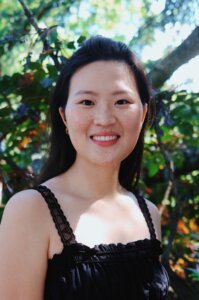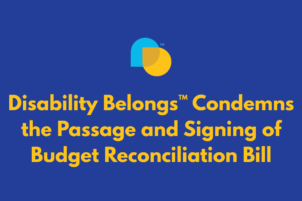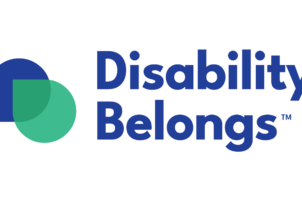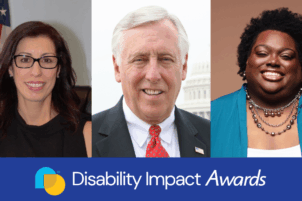If you knew your baby had a disability, would you still keep it?
Two students from my church fellowship debated this question, as I sat quietly between them. My body tensed up, preparing for their answers.
No… I don’t think I would. I would want my child to be healthy and happy.
Well, if God made all of us in His image… shouldn’t we keep the baby?
They turned towards me with sheepish smiles, as if they just remembered I was one of those babies. My eyes widened, and I hastily raised my hands.
No, no, don’t worry! I won’t get offended, please don’t let me stop you from talking about this. I understand where you’re both coming from.
Part of that was a lie.
I was offended, but too numb to register the emotion because I heard variations of this conversation growing up. The responses were similar. No, we want them to be healthy. With genetic engineering, we could remove the defective gene! No, I don’t want my child to have so much suffering in her life. Well, I don’t know… What do you think? I leaned towards “no,” too, until I learned about ableism years later.
I was born deaf to hearing immigrant parents and received bilateral cochlear implants, my first one at thirteen months old, my second at ten years old. As a triple minority, one of the biggest challenges is figuring out how to show up as you are in different spaces. No matter where I go, I’m a woman in a man’s world. I’d feel excluded not only from the AAPI community because of my disability, but also from the disability community because I’m a person of color, which affected my mental health. Over time, the lights in my mind dimmed. Once dark, beasts of all kinds emerged.
I recognized a kindred darkness in Danny Cho (Steven Yeun) and Amy Lau (Ali Wong), lead characters of the TV series Beef. When hanging out with Amy’s husband George (Joseph Lee), Danny tries to describe the emptiness piercing his soul — “this feeling,” he calls it — but he avoids naming depression and deflects George’s suggestion to talk to someone. Danny’s famous line “Western therapy doesn’t work on Eastern minds” seems to have resonated with many Asian Americans, much to my dismay.
Seeking help is considered taboo in the AAPI community. According to the National Alliance of Mental Illness (NAMI), Asian Americans are the least likely to receive mental health treatment, compared to those of other racial and ethnic backgrounds. In 2020, only 20.8% of Asian adults with a mental illness received treatment.
I wonder if one of the reasons for our resistance is because of mental health’s connection to disability. By confessing we have a problem with our mental health, we admit that we are considered disabled, too, at least by law.
In the past few years, COVID, racism, and hatred swallowed one life after another, but one good thing rose from this cesspool of blood and water: vulnerability. Isolated at home, targeted on the streets, we were forced to confront our feelings and reached out to one another for support. Online communities, like Instagram accounts Asians for Mental Health and Asian Mental Health Collective, thrived. We shared our stories, created therapist directories, and hosted Zoom events.
On the one hand, I felt glad that we started to prioritize our well-being, but on the other hand, I was confused and frustrated by the absence of what seemed obvious to me, that mental health is a disability. Though I’ve seen some non-disabled Asian Americans educate themselves on disability rights, I find that prejudice, ignorance, and apathy tend to be more common in our community. There’s a big information gap, rooted in ableism and cultural dynamics.
When I meet disabled Asian Americans, most of them are on the sidelines of their community or sequestered away at home. Because the family fears what other people will think of their disabled child, the parents believe the “safer” option is for their child to stay home, away from judgmental stares and snarky comments. Such stigma breeds shame, for both sides. We deny the disabled child the confidence to share her story, as well as the agency to live on her own terms. We deny ourselves from hearing a different perspective and growing in humanity. No wonder it’s so difficult to find disabled Asian Americans in mainstream media and within the community. Asian Americans remain so separate from the disability movement, which is in dire need of our voices.
Sometimes, the spaces that are supposed to be safe for us end up being the most painful. As a second-generation Korean American, I’ve witnessed and experienced such pain in predominantly Asian churches. The church failed the boy with epilepsy, who loved attending fellowship events though he was not known and seen by his peers. The church failed the young adult with a mental illness, who sat alone at dinner, talking to people we couldn’t see about his longing for community. The church failed the boy in a wheelchair, who drifted through hundreds of people after service ended, week after week. The church was no different from society.
When I said I had a hard time hearing the sermons or following conversations in restaurants, I was dismissed. My peers questioned me because I “pass” as a hearing person. Instead of speaking my mind, I swallowed my words. A staff member told me “Church is not for you. It’s for God.” Though well-intentioned advice, it fed the sneering voice in my mind: You are a burden. In retrospect, it breaks my heart that I accepted this behavior as the norm. But I didn’t know any better because that’s how I was treated.
Why does the church preach “brothers and sisters in Christ” when its people don’t “love your neighbor,” the one sitting right next to them? Consider what it means to attend a church that says you’re a burden because you have a different lived experience. Consider what it means to attend a church that refuses to change the way it does things because it claims to not have enough resources, it claims there’s no clear reason, or it claims your need would take a lot of work. Consider what it means to attend a church that doesn’t try to make space for you. At some point, the sermons on love start to taste bitter and metallic. The smiles turn hollow, the hugs, stiff. And so, we leave.
While writing this reflection, I couldn’t help but wonder if it’s unfair, or selfish, to thrust disability into the discourse so soon. Immigration is traumatic for most people, like my parents. They didn’t have the luxury to identify triggers or practice “self-care,” a luxury I now have, because they needed to put food on the table. Our parents push for “stable” career paths, tell us how we should live our lives—all out of love—because they understand how hard it is to be respected in this country as a foreigner, especially when you’re poor and uneducated.
The irony is that by fulfilling our parents’ wishes, the country tells us we’re too educated, too wealthy, to deserve help. The model minority myth is wildly offensive and simplistic, squashing the enormous diversity of the Asian American diaspora. It pits minority groups against one another in an absurd Suffering Olympics that seems to never end. It yanks a sack over our heads and pulls the rope tight, as we kick, scream, and pummel for air. Our ever-changing political identity reflects some of that frenzy, flitting from Asian American to AAPI to APIDA to API to AANHPI. We’re still figuring ourselves out, fighting invisibility.
After living in silence for years, we’re now finding the words, the breath, and the courage to sit with our dried tears and hazy memories. We’re finally addressing our depression by its name instead of using a vague misnomer, like “this feeling” or “sadness.” We’re finding our voice and shoving a veiny middle finger to Asian American stereotypes, as Beef so elegantly illustrates with a strained smile. We’ve made so much progress as a community because we are capable of change.
Some people have the heart to change, but they don’t know about disability rights out of pure, not chosen, ignorance. As with any allyship journey, education is crucial. Be curious. Listen to disabled Asian Americans. Read books by disabled authors. Get involved in the disability community. Allyship is a process, no one is perfect, but what matters is that you’re trying.
I’ve seen a few glimmers of progress. A deaf kid attends my friend’s church youth group. To better communicate with him, the congregants learned sign language. As part of the Asians Americans with Disabilities Initiatives (AADI), I’ve had the pleasure of meeting lovely changemakers who approach disability with an open heart and mind, the humility to learn, and a commitment to doing better.
When I lived in Michigan after graduating from college, I joined a small Korean American church—the first church, in my life, to provide me with live transcription. The people who suggested the accommodation worked with me throughout the entire process. They researched different types of captioning services, asked me which one was the best fit, found a spare TV for free, worked to improve the transcribing accuracy, and urged me to keep giving them feedback post-setup. It never occurred to me before that I deserve this kind of treatment. Receiving such care allowed me to begin healing.
As we learn more about disability rights, I suspect we’ll be surprised to discover how many disabled Asian Americans live and work among us. Some disabilities go undiagnosed for years because we’re told to push through “laziness” with sheer willpower, which has its limits. Eventually, we crack or turn to stone. Most of us also had parents who worked long hours to pay the bills, so any symptoms went largely undetected. Others may have been aware, but they didn’t have access to proper professional and cultural resources.
By opening ourselves up to disability, may some of us find healing to lingering wounds from childhood—healing for behaviors that were labeled “crazy” or “weird” and contributed to us feeling lonely, isolated, and misunderstood. There’s a lot of work to do, but we must take care of each other. The thoughts and feelings we curate today affect the people around us, our family and friends, our coworkers and students, our future generations.
If you knew your baby had a disability, would you still keep it?
Yes. I’d love them like I’d love any other child.
Note from the author: While I use the terms “AAPI” and “Asian American,” my experiences are mainly rooted in Korean American and East Asian environments, so don’t assume other disabled Asian Americans share my views. It’s important to call out this distinction because American media has a history of lumping Asian ethnicities together, which muddies the richness and nuances of each culture.
For more resources, I recommend reading The Asian Americans with Disabilities Initiative Resource Guide.









Such an important read – thanks for sharing your story!